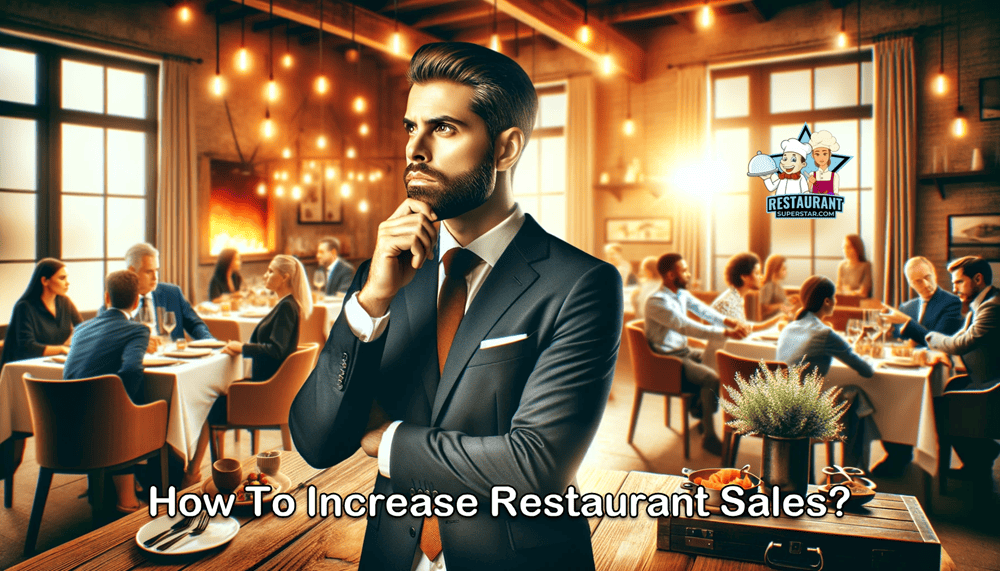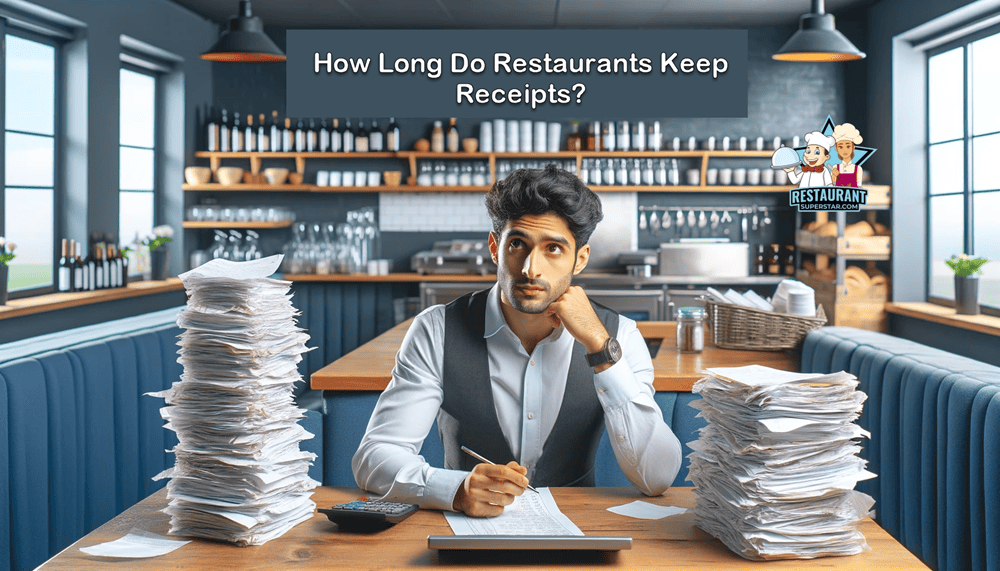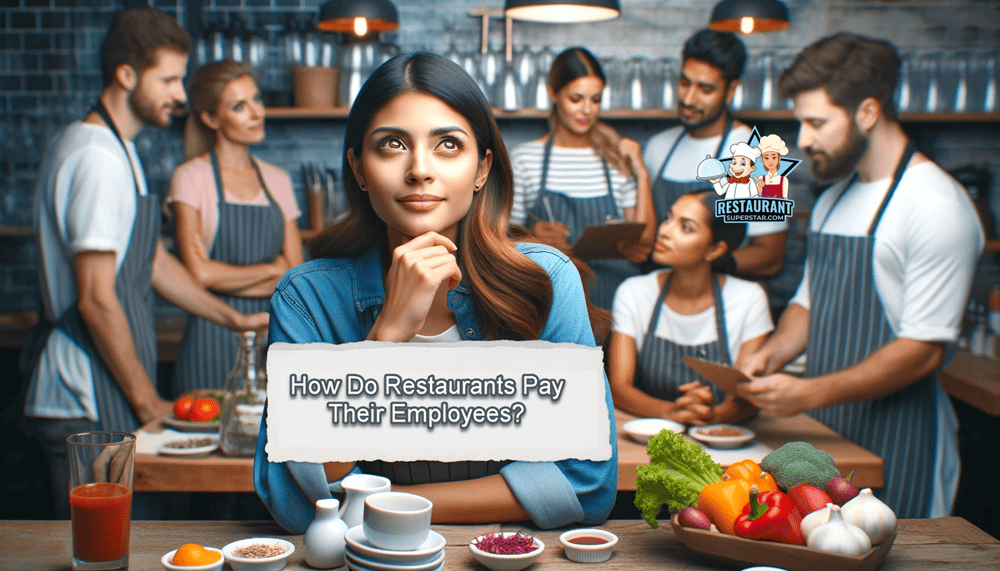Cracking the Code: How to Value a Restaurant for Sale
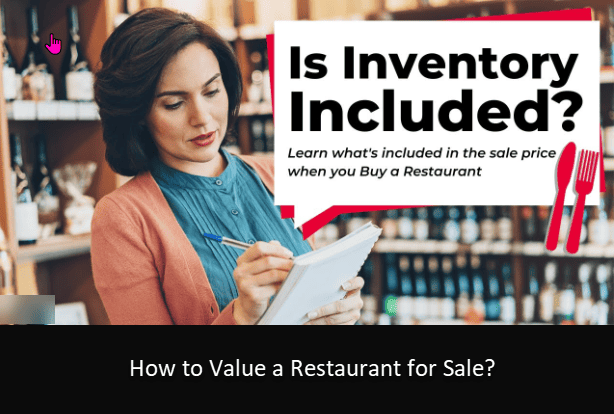
If you’re wondering “How to Value a Restaurant for Sale,” you must first understand that the process involves evaluating tangible assets, reviewing financial performance, and considering less quantifiable elements like market conditions and your restaurant’s reputation.
As a seasoned restaurant consultant in sunny Florida, I’ve seen repeatedly that each of these factors can significantly influence a restaurant’s market value.
Hey there, I’m Jeff, your trusty neighborhood restaurant consultant.
With years of experience guiding restaurant owners through the intricate process of valuing their businesses for sale,
I’m here to impart my insights and stories to you today.
Let’s dive in together.
How to Value a Restaurant for Sale
To value a restaurant for sale, you can use the following methods:
- Determine the restaurant’s seller’s discretionary earnings (SDE), basically net income, and multiply the SDE by the restaurant’s industry multiples.
- Apply a multiple to the discretionary earnings of the business.
- Calculate based on the annual gross revenue of the business and apply it accordingly.
- Calculate the value of all of the assets of a business and arrive at the appropriate price.
- Determine the value of the restaurant’s assets if it were forced to sell all of them in a short time (usually less than 12 months).
The most accurate approach aims to estimate the value of a business by applying a multiple to its discretionary earnings.
Discretionary earnings are the total cash the business generates in a year that is available to the owner after deductions for only necessary operating expenses.
Restaurateur’s Handbook: How to Value Your Restaurant for the Perfect Sale
Determining the correct market value of a restaurant is crucial when planning to sell. It goes beyond simply assigning a price to your building and equipment. It involves understanding the value of your hard work, brand, and restaurant income.
It involves a careful review of financial statements, a close look at assets and equipment, an evaluation of your business growth potential, and a thorough understanding of the current market conditions.
The process can seem overwhelming, especially for first-time sellers. But don’t worry; by the end of this article, you’ll understand how to accurately value your restaurant for sale and the factors that can influence its worth.
You’ll also have a few handy tips on how to make your restaurant more attractive to potential buyers.
Understanding Restaurant Valuation Methods
Now, if there’s one thing I’ve learned from my years of experience as a restaurant consultant, there’s no one-size-fits-all approach to valuing a restaurant for sale. You can use several methods, and each has its strengths and quirks.
So, let’s get our feet wet and explore some of these methods, shall we?
- Sales Comparison Approach: Picture yourself buying a house. What’s one of the first things you’d do? You’d probably check out what similar houses in your neighborhood are selling for, right? The same principle applies to restaurants. You can compare your restaurant with similar ones recently sold in your area. This approach gives you a ballpark figure, but every restaurant has unique aspects that can influence its value.
- Asset-Based Approach: This method focuses on, you guessed it, the assets! It involves adding up the value of all the restaurant’s assets, including kitchen equipment, furniture, inventory, and the property itself if you own it. The hitch here is that this method doesn’t account for future earnings so it may undervalue successful restaurants.
- Income Capitalization Approach: This is my personal favorite, folks. It’s a bit more complex, but it considers the future profitability of the restaurant. You calculate this value based on your restaurant’s net income and capitalization rate, which is influenced by market conditions and the level of risk associated with your business. It’s a more comprehensive method and can often paint a more accurate picture of a restaurant’s value.
- Multiplier Method: This is a simpler variation of the Income Capitalization Approach. It involves multiplying your annual sales or profits by a certain factor, which varies based on location, competition, and overall business performance. While quicker and easier, it’s less precise and can sometimes over- or undervalue a restaurant.
These methods are not mutually exclusive, folks. As a restaurant owner, you can use a combination of these to arrive at a realistic value for your restaurant.
When I work with clients on “how to value a restaurant for sale,” I usually recommend using at least two methods. It gives you a range of potential values, and you can decide on the right price.
The Role of a Professional Restaurant Appraisal
We’ve talked about different valuation methods, and if you’re a do-it-yourself person, you might think, “Hey, I can handle this on my own.”
Now, I’m all for rolling up your sleeves and getting your hands dirty, but when valuing a restaurant for sale, there’s much to be said for bringing in a professional. Here’s why.
- Objective Assessment: As a restaurant owner, you’ve poured your heart and soul into your business. That emotional investment can cloud your judgment when determining your restaurant’s value. A professional appraiser can give you an impartial and accurate assessment, ensuring you don’t undervalue or overvalue your business.
- Industry Expertise: Professional appraisers are well-versed in current market trends and conditions. They have the necessary tools and experience to analyze your restaurant’s financial performance, assess your assets, and factor in other variables like location, competition, and growth potential. Plus, they’re pros at understanding those complex financial statements!
- Credibility with Buyers: An appraisal from a reputable professional can instill confidence in potential buyers. It shows them you’re serious about selling and have done your homework. Buyers are more likely to trust a professional appraisal and less likely to negotiate the price down.
- Saves Time: Figuring out a restaurant’s value can feel like a chore, especially if you’re new to this game. Here’s a tip: letting a pro handle it can free up your precious time to focus on managing your place or brainstorming your next big move.
As much as I advocate for understanding the valuation process, a professional restaurant appraisal can take the pressure off and ensure you get a fair and realistic price. In my experience, an investment often pays for itself when the sale goes through.
Key Factors in Valuing a Restaurant
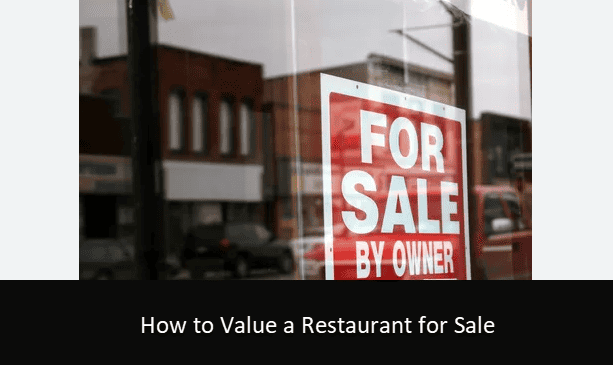
We’ve discussed the importance of professional appraisals and valuation methods, but what ingredients go into this recipe?
What are the key factors that determine the value of your restaurant?
Let’s break it down.
- Location and Lease Terms: As they say in real estate, location, location, location! If your restaurant is in a popular area with high foot traffic, it can significantly boost its value. But the lease terms are just as important. A long-term lease at a favorable rate in a prime location? That’s pure gold, my friends.
- Sales Revenue: This one’s a no-brainer. Higher sales revenue often translates into a higher restaurant value. Potential buyers want to see a strong track record of sales, so keep your books in order and be ready to present your sales history.
- Cash Flow: This is your sales revenue minus your operating expenses. It’s a key indicator of your restaurant’s financial health and profitability. Consistent positive cash flow can significantly increase your restaurant’s value.
- Assets and Equipment Value: Your tangible assets, like kitchen equipment, furniture, and décor, add value to your restaurant. Ensure you have a complete inventory of your assets, and keep them well-maintained.
- Business Growth Potential: Even the most successful restaurant can lose value without room for growth. If your restaurant is already operating at its peak in a saturated market, where can it go from there? Conversely, a restaurant with plenty of growth potential can fetch a higher price.
- Customer Base: A loyal and regular customer base is worth its weight in gold. It shows the restaurant’s popularity and ensures a steady flow of revenue for the new owner.
- Market Conditions: The restaurant industry is influenced by economic trends and consumer behavior. Are people dining out more? Is there a trend towards a particular type of cuisine? Understanding these conditions can help you gauge the value of your restaurant.
- Competition: Your competition can either increase or decrease your restaurant’s value. If you’re the only sushi place in a city full of sushi lovers, that’s a competitive advantage!
- Profit Margins: Last, but not least, profit margins matter. Higher profit margins indicate a more efficient and profitable operation, which can boost your restaurant’s value.
As you can see, valuing a restaurant for sale is not just about the numbers. It’s a blend of financial performance, tangible assets, market factors, and the potential for future growth. Understanding these elements can help you set a fair and competitive price for your restaurant.
How to Determine the Price of a Restaurant: A Step-By-Step Guide
Let’s dive right in and delve into the intricacies of setting the perfect price for your restaurant. It’s time to get down to business and ensure your pricing strategy is top-notch. I’ve outlined a simple, step-by-step guide to help you calculate your restaurant’s market value. So, let’s dive right in!
- Collect Financial Documents: The first step in valuing your restaurant is gathering your financial records. It is crucial to diligently maintain precise and current records, encompassing profit and loss statements, balance sheets, tax returns, and sales reports. These vital documents will serve as the bedrock for assessing your valuation.
- Inventory Your Assets: List all your tangible assets, like kitchen equipment, furniture, décor, and inventory. If you own your property, this should be included, too. You’ll need this list for the asset-based valuation method.
- Analyze Sales Revenue and Cash Flow: Deep dive into your sales revenue and cash flow. Your restaurant’s financial health indicators will be crucial in income capitalization and multiplier valuation methods.
- Consider Your Lease Terms: If you don’t own your property, your lease is critical to your restaurant’s value. A long-term lease in a favorable location can add significant value to your restaurant.
- Evaluate Your Market: Look at your restaurant’s growth potential, customer base, market conditions, and competition. Understanding these factors will give you valuable insights into how your restaurant can flourish in the future.
- Apply Valuation Methods: Now that you’ve gathered all the necessary data, it’s time to apply the valuation methods we discussed earlier. You might find using multiple methods to arrive at various possible values helpful.
- Consider Hiring a Professional Appraiser: As we discussed, a professional appraiser can provide an impartial, accurate valuation. They can also save you time and lend credibility to your asking price. Hiring a professional might be a good option if you’re unsure about valuing your restaurant.
- Set Your Price: Based on your analysis and valuation, you can now set a price for your restaurant. Remember, the price you set should reflect the value of your restaurant and your goals for the sale.
And voila! You’ve determined the price of your restaurant. Remember, valuing a restaurant is part art, part science. It’s about understanding the numbers and your restaurant’s unique qualities and potential.
Restaurant Business Evaluation: Beyond the Numbers
We’ve spent a lot of time talking about the financial side of valuation, which, don’t get me wrong, is hugely important.
But remember, a restaurant is more than just its assets and profits. There’s a whole other side to your restaurant’s value that’s less tangible but just as important.
- Reputation: In our digital age, a restaurant’s reputation can make or break its success. Positive online reviews, food critic write-ups, and awards can all add significant value to your restaurant. If your restaurant is known for its top-notch service or unique culinary experience, ensure potential buyers know it!
- Customer Loyalty: A loyal customer base is like gold. It means stable revenue and word-of-mouth advertising, which can boost your restaurant’s value. But it’s not just about the numbers – it’s about relationships. If you’ve built a community around your restaurant, that’s something a new owner would be lucky to inherit.
- Growth Potential: This is about looking ahead. If there’s room for the restaurant to grow – expanding the menu, offering catering, or opening a second location – that potential can translate into a higher value. Show potential buyers the opportunities they could tap into.
- Employee Relations: A dedicated and skilled staff can be a major asset. A high employee turnover can raise concerns among potential buyers. However, a steadfast and proficient team demonstrates that your restaurant is an exceptional workplace and enhances its overall value.
- Brand Identity: Your brand is what sets you apart from the competition. It’s your restaurant’s personality, its story. A strong, recognizable brand can significantly increase your restaurant’s value.
So, as you can see, evaluating a restaurant business goes way beyond dollars and cents. It’s about the heart and soul of your business – the things that make your restaurant uniquely yours. These intangible aspects can impact your restaurant’s value, so don’t overlook them.
Best Practices for Pricing a Restaurant for Sale
We’ve embarked on an exciting journey through the fascinating realm of restaurant valuation exploring everything from financial documents to intangible factors.
Now that you’ve mastered valuing your restaurant, let’s delve into some invaluable best practices for selling it, ensuring a profitable and seamless transaction.
- Price It Right: This seems obvious, but it’s worth emphasizing. Determining the ideal price is a nuanced equilibrium. Set it too high, and you risk alienating prospective buyers. Set it too low, and while you may achieve a swift sale, you forfeit potential profits. Your price should reflect your restaurant’s value and your selling goals.
- Be Prepared to Negotiate: As much as you might want to stick to your asking price, be prepared for negotiations. Buyers will always try to get a better deal, so be ready to justify your price with concrete data and information.
- Offer Clear Financial Records: A potential buyer wants comprehensive financial records. The more transparent you are, the more likely a buyer will trust your asking price.
- Highlight Your Unique Selling Points: What sets your restaurant apart as the epitome of excellence? Is it the fantastic menu, prime location, or dedicated customer base? Ensure you highlight these distinctive selling points in your sales pitch to justify pricing.
- Hire a Professional: As mentioned earlier, enlisting the services of a professional appraiser can offer an accurate valuation and establish credibility for your asking price. Moreover, it demonstrates your genuine commitment to the selling process to prospective buyers.
- Stay Open to Terms: Sometimes, it’s not just about the price. You might be open to seller financing or willing to negotiate on inventory, fixtures, or lease terms. Flexibility can make a deal more attractive to potential buyers.
Remember, pricing your restaurant for sale isn’t an exact science. It’s a strategic process that involves understanding your restaurant’s value, presenting clear financial records, and being prepared to negotiate. But with these best practices in mind, you’ll be well-equipped to price your restaurant for a successful sale.
The Importance of Financial Statements in Restaurant Resale Value
This time, we will delve into a critical part of the valuation puzzle – financial statements. I know financial documents might not be the most exciting topic, but trust me, when determining your restaurant’s resale value, they’re as essential as a chef in the kitchen. So, let’s get into it!
- Understanding Your Business: First and foremost, financial statements give you a deep understanding of your business. They highlight your restaurant’s financial health, showing income, expenses, assets, and liabilities. These are the hard numbers that a potential buyer will look at when considering your restaurant.
- Proof of Profitability: Your income statement, also known as a profit and loss statement, is crucial. It shows your revenue, costs, and expenses over a specific period. This statement is the proof in the pudding of your restaurant’s profitability, a critical factor in determining its value.
- Asset Valuation: Your balance sheet provides a snapshot of your restaurant’s assets, liabilities, and owner’s equity. This includes everything from kitchen equipment to cash in the bank. Regarding the asset-based valuation method, the balance sheet is your best friend.
- Cash Flow Visibility: The cash flow statement captures the influence of income and changes in balance sheet accounts on cash and cash equivalents. It provides invaluable insights into the movement and availability of vital resources. Essentially, it elucidates the flow of funds within your business. This information holds immense value for potential buyers.
- Business Trends and Forecasting: Financial statements can highlight trends and help forecast future performance. They can show seasonality in the restaurant business, profit margins, and growth rates. This helps a potential buyer gauge the future profitability of the restaurant.
- Transparency and Trust: Lastly, well-maintained and accurate financial statements signal to potential buyers that your business is well-run and that you’re a trustworthy seller. This transparency can significantly impact the speed and success of the selling process.
So, as you can see, financial statements play a crucial role in determining your restaurant’s resale value. They provide a detailed, accurate, and transparent picture of your restaurant’s financial health and potential profitability. And that, my friends, is invaluable when selling your restaurant.
Preparing Your Restaurant for Sale: Essential Steps
What about making your restaurant as attractive as possible to potential buyers? That’s where preparation comes into play. Like preparing a meal in your restaurant, preparing for a sale takes time, planning, and careful attention to detail. So, let’s dig into the essential steps to prepare your restaurant for sale.
- Boost Your Sales Revenue: This is a biggie. Buyers want to see that your restaurant is profitable, and nothing screams profitability like high sales revenue. It might be time to introduce new menu items, host events, or increase marketing efforts.
- Improve Your Location Terms: If your lease terms are favorable, that could be a major selling point. Long-term, below-market leases can be very attractive to buyers. Also, ensure your relationship with your landlord is solid, and no issues could scare off a potential buyer.
- Spruce Up Your Physical Assets: Everything should be tip-top, from your dining area to the kitchen. This might mean doing minor renovations, updating your décor, or upgrading your kitchen equipment. You want your restaurant to look its best when potential buyers come knocking.
- Clean Up Your Financials: As discussed, clear, comprehensive financial records are crucial. Ensure your books are in order, all taxes and bills are paid, and you can present your financial statements immediately.
- Solidify Your Staff: A skilled and stable team can be a major selling point. Ensure your staff is well-trained and happy, and have a plan for transitioning to new ownership.
- Build and Protect Your Brand: Your restaurant’s brand is its identity. Whether it’s the name, logo, or unique menu items, make sure to protect it with trademarks and copyrights where needed.
- Be Ready to Sell Your Success Story: Be prepared to tell potential buyers the story of your restaurant’s success. This might include showing them positive online reviews, press coverage, or customer testimonials.
Hey, just a friendly reminder: being well-prepared is crucial when selling your restaurant. The more prepared you are, the more appealing your place will be to potential buyers. And trust me, that can lead to a faster sale at a better price.
So, get ready, and let’s make it happen.
Frequently Asked Questions – How to Value a Restaurant for Sale
What is the sales formula for a restaurant?
To determine the net sales of a restaurant, you have to subtract customer discounts and refunds from the gross sales. Gross sales are the total revenues generated before any discounts or refunds are given to customers.
How do you estimate the value of a restaurant?
A common approach to estimating a restaurant’s value is to sell the restaurant for approximately 25-40% of the annual operating income. If, for instance, the restaurant generates $1 million in sales per year, the sales price could fall from $250,000 to $400,000.
What is the rule of thumb for restaurant valuation?
A general rule of thumb in restaurant valuation is 2.3 times the cash flow. It’s common for some restaurant owners not to report all their income, leading to conflicts during valuation, as they often insist on factoring in these unreported funds.
How much should I sell my restaurant for?
Ideally, restaurant owners or investors aim to sell their establishments for about 25-40% of the restaurant’s annual operating income.
What multiple does a restaurant sell for?
On average, restaurants and food service businesses sell for slightly over two times their earnings. However, this can range from 1 to 2.5 times earnings, illustrating how local market trends and specific business qualities can impact valuation and sales price.
What multiple of Ebitda do restaurants sell for?
The typical EBITDA multiple for the restaurant industry usually falls around 15.3x to 15.7x. The median range is about 12.5x to 15.2x, highlighting variability in the sector.
How do you determine how much you can sell your business for?
To ascertain how much you can sell your business for, you need to consider four elements:
- Establish your net income by subtracting all expenses from your gross profit.
- Look at industry multiples.
- Figure out your market.
- Determine your potential market growth rate.
- Factor in your growth projections.
What is the general rule for valuing a business?
The discretionary earnings method is a general rule used in business valuation. This approach involves calculating the business’s annual cash available to the owner after deducting essential operating expenses. This figure is then multiplied by a factor typically between two and four, contingent on the nature of the business.
What are the three methods of valuation?
The three main valuation methods are the market, cost, and income approaches. Each method has its advantages and drawbacks and is suited to different situations.
How much should a small business be sold for?
Small businesses with active owner involvement are valued at 2-3 times their annual earnings. For example, if a business generates $100,000 annually, its selling price would range from $200,000 to $300,000.
How much is a company worth based on revenue?
A company’s current worth can be estimated using the times-revenue method based on expected future profits. This involves applying a revenue multiple to the company’s current revenue and determining the potential profitability range.
Conclusion – How to Value a Restaurant for Sale
Together, we’ve delved into the ins and outs of restaurant valuation, uncovered key factors to consider, walked through the process, and shared best practices for selling your restaurant.
So, let’s take a moment to recap and tie it all together.
We broke down the various restaurant valuation methods, from income-based and asset-based approaches to the market approach.
We discovered that each has strengths and limitations and that a combination often yields the most accurate results.
Next, we dove into the vital factors influencing your restaurant’s value.
We chatted about everything from location and lease terms to your restaurant’s financial health and profitability. Remember, all these components are critical in shaping your restaurant’s value.
Then, we walked through a step-by-step guide to determine your restaurant’s price, emphasizing the importance of hiring a professional appraiser to ensure an accurate and fair valuation.
We also touched on intangible factors such as reputation, customer loyalty, and growth potential that can impact your restaurant’s value.
Similarly, we looked at how financial statements are pivotal in determining your restaurant’s value, providing a clear, accurate, and transparent picture of its financial health.
Then, we shared some best practices for pricing your restaurant for sale, from setting the right price to negotiating and offering clear financial records.
Lastly, we discussed the essential steps in preparing your restaurant for sale, from boosting sales revenue to improving location terms.
The process of valuing and selling a restaurant is a journey. It requires careful preparation, a solid understanding of the many factors influencing your restaurant’s value, and a strategic approach to pricing and negotiation.
But remember, you’re not alone in this. As your trusted restaurant consultant, I’m here to guide you every step of the way.
As we part ways, I’d like to leave you with this: selling your restaurant is more than a financial transaction.
It’s the culmination of your hard work, passion, and dedication. It’s a chapter in your story. So, approach it with the same love and care you’ve put into your restaurant.
Jeff, your trusted restaurant consultant, is signing off from sunny Florida. Until our next adventure together.
Don’t hesitate to reach out if you need further information or help.
Until then, take care, friends.
Jeff Smith is a Restaurant Consultant with over 20 years of hospitality experience ranging from server to owner and general manager. He focuses on Restaurant POS technology as well as restaurant marketing. Check out our world-famous restaurant resources page for a comprehensive offering of hand-picked resources and tools to help your business. You can also check out some of our other restaurant business articles.

